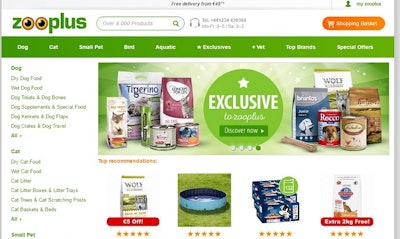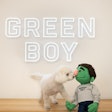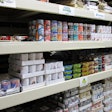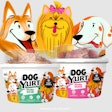
Online sales of all pet care products in Europe, including pet food, are growing 5 percent to 9 percent a year, according to Euromonitor International, which projects similar compound annual growth rates through 2021. That means Western Europe’s current pet care ecommerce sales of US$1.8 billion will continue to grow at a healthy clip of 5.6 percent, while Eastern Europe, though showing much lower sales of US$271,000 in 2016, will average about 9.2 percent growth a year.
Paula Flores, global head of pet care research for Euromonitor, presented this data during Petfood Forum Europe 2017 on June 13 in Cologne, Germany. She included internet retailing as part of a key trend for the future of pet food and pet care: technology. As she put it, “Technology conquers all,” referring not just to ecommerce but also to the growing development and popularity of apps and devices for owners to keep tabs on their pets’ eating habits, activity and whereabouts.
She’s right: Today, technology does conquer all, causing significant change – good and bad – in nearly every area and aspect of our lives. For pet care, one of the more difficult shifts has been the inability of small, independent pet retailers to compete with ecommerce on pricing, especially for pet food. Unfortunately, this seems to be a universal problem.
Pet food MAP not an option in Europe
In the US, as ecommerce sites like Amazon and Chewy have risen and gained higher shares of the pet food market, independent pet stores have pushed back by demanding that pet food manufacturers extend policies such as minimum advertised price (MAP) or minimum retail price (MRP) to online sites. Increasingly, pet food companies are complying, with a few even pulling their business from Chewy after its purchase by PetSmart, in a bid to prove their loyalty to the independent pet retail channel.
In the European Union (EU), adopting a MAP policy for online retailing is not an option for pet food companies, even if they see the value and want to do so. EU laws prohibit MAPs, according to Juergen Wigger, PhD, managing director of Bewital Petfood in Germany. The reasoning is a belief that MAPs are detrimental to innovation in retailing, he told Petfood Industry after Petfood Forum Europe; yet, in his view, those laws contribute to the inability of smaller pet retailers to compete against internet retailers. “This is killing smaller businesses, even small cities and villages in Europe,” Wigger said, adding that he and others are lobbying the EU to change the law.
Superpremium brands such as Bewital’s Belcando and Leonardo account for 45 percent of the pet specialty trade in Europe, Wigger said, and now 15 percent of that business is going online – representing a “huge problem” for the market.
Positive partnerships between pet food companies and online retailers
That doesn’t mean ecommerce can’t complement and even support traditional retail sales. Wigger said he resisted selling his company’s products on Zooplus, a growing pet ecommerce site in Europe, for many years; but since deciding to work with the site in 2014 or 2015, Bewital has enjoyed even more revenue growth, including with existing independent retail accounts.
As with other online retailers, pet food is driving sales growth for Zooplus itself, which reported a 26 percent increase in pet food sales year over year (YOY) in the first quarter of 2017. Its overall sales growth for the quarter was 24 percent YOY. With sales of EUR257 million (US$287 million) for the quarter, Zooplus is projecting annual sales to reach EUR1.1 billion (US$1.25 billion).
Likewise, Wigger projects robust growth of 15 to 20 percent this year for Bewital. While he attributes that to several factors, it can’t be denied that ecommerce can be a positive force for pet food companies; yet for the long-term health of the market, all pet retailers also need to share in the industry’s continued growth and success.

















